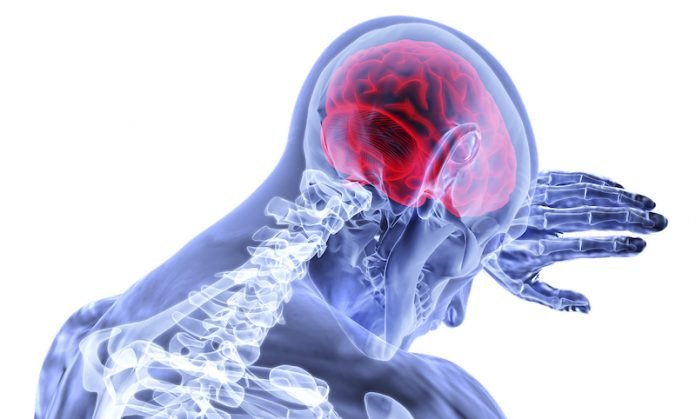
In a new study, researchers have shown that genetic data obtained from a single blood draw or saliva sample can identify individuals at a 3-fold increased risk of developing ischaemic stroke, a devastating condition and one of the leading causes of disability and death worldwide.
The scientists developed a genetic risk score that is similar or more predictive than commonly known risk factors for stroke.
Their work further suggests that individuals with high genetic risk may require more intensive preventive measures to mitigate stroke risk than is recommended by current guidelines.
The research was conducted by a group of scientists from Australia, Germany, and the UK.
Stroke is the second most common cause of both death and disability-adjusted life-years worldwide.
About 80% of stroke cases are caused by occlusion of a brain supplying artery (so-called ‘ischaemic stroke’).
The risk of ischaemic stroke is determined by genetic and environmental factors, which act through modifiable risk factors such as hypertension and diabetes.
Genomic risk prediction, based on an individual’s unique DNA sequence, has distinct advantages over established risk factors as it could be used to infer the risk of disease from birth.
It may thus allow initiation of preventive strategies before individuals develop conventional risk factors for stroke such as hypertension or hyperlipidemia.
In the study, the researchers analyzed large-scale genetic data from research groups worldwide and applied their results to data on 420.000 individuals from the UK Biobank.
They used a machine learning approach to integrate stroke-related genetic data from various sources into a single genetic risk score for each individual.
They found that the score both outperformed previous genetic scores and had similar predictive performance as other well-known risk factors for stroke, such as smoking status or body mass index.
Importantly, the new genetic risk score was much better than family history at predicting future ischaemic stroke, to the extent that it could detect the roughly 1 in 400 individuals at 3-fold increased risk.
The study’s analyses show that current clinical guidelines may be insufficient for individuals at high genetic risk of stroke and that these individuals may need more intensive interventions.
The lead author of the study is Martin Dichgans, Professor of Neurology.
The study is published in Nature Communications.
Copyright © 2019 Knowridge Science Report. All rights reserved.



